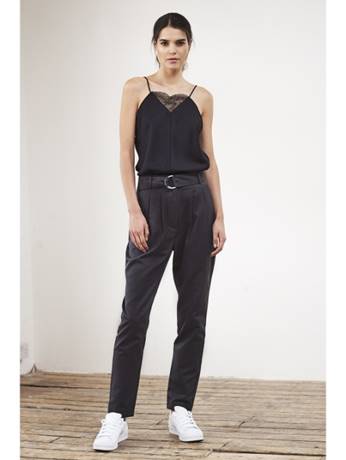The Indian clothing industry is one of the world’s most vibrant, creative, and evolving industries. From traditional Indian garments to contemporary westernized designs, there is something for everyone. In the past few years, the Indian fashion industry has seen an upsurge in creative innovation, leading to a new wave of designs and styles.
The clothing industry has evolved over the years and has seen rapid growth in the last few decades due to the creative innovations of designers. From traditional to modern attire, the Indian clothing industry has been able to come up with something new and exciting every time.
This article will explore the importance of creativity and innovation in the Indian clothing industry and provide examples of some innovations introduced.
The Indian clothing industry
The Indian clothing industry is highly competitive, and companies must stay ahead by introducing new and innovative designs. Creativity is necessary for companies to stand out from the crowd and create products that are unique and attractive to customers. Companies can attract more customers and increase their sales by introducing creative designs.
The importance of creativity in the industry
One of the most successful creative innovations in the Indian clothing industry is the use of traditional fabrics and designs. Creativity is essential in the clothing industry because it allows companies to create unique designs that appeal to their target market. For a creative career in fashion design, you must choose the best course.
Companies can create fashionable, stylish, and attractive clothing for potential customers by being creative. This can help increase sales and profits, as customers are more likely to purchase a dress, they find attractive. Creativity can also help differentiate a company from its competitors, as customers will be more likely to buy clothing from a company that stands out.
It can ensure that the company remains competitive in the market and can help to increase sales and profits. Creativity can also help create a unique brand identity that customers will recognize and associate with the company.
Examples of creative innovations in the industry
For example, many companies have started to use traditional Indian fabrics such as khadi, Chanderi, and Banarasi in their products. It allowed them to create modern and traditional products, appealing to a wide range of customers.
Creative innovation in the Indian clothing industry is using sustainable materials. Many companies have used sustainable materials such as organic cotton, bamboo, and hemp. It will allow them to create products that are both stylish and eco-friendly, appealing to customers who are looking for sustainable fashion.
The future of the Indian clothing industry
The Indian clothing industry is the most vibrant and dynamic sector. The industry is estimated to be worth over 50 billion and is multiplying. With the rise of e-commerce, the industry has seen a surge in demand for its products. It will increase the number of players in the market and the variety of products.
The future of the Indian clothing industry looks bright. With the rise of e-commerce, more people can access a broader range of products at competitive prices. It will lead to an increase in the number of customers, brands, and product quality, which will increase the number of designers.
The Indian clothing industry is also seeing a shift towards sustainable fashion. It is due to the increasing awareness of the fashion industry’s environmental impact. Companies are now focusing on using sustainable materials and processes to reduce their carbon footprint. It also leading to an increase in the number of ethical brands, which are focused on creating products that are not only fashionable but also environmentally friendly.
The Indian clothing industry is also seeing a shift toward digitalization. It is due to the increasing use of technology in the industry. Companies are now using digital tools to create more efficient processes and reach a wider audience. It will increase the number of online stores and customers.
Overall, the future of the Indian clothing industry looks bright. With the rise of e-commerce, sustainable fashion, and digitalization, the industry is poised to continue to grow and evolve. It will increase the number of customers’ variety of products. It will be a rise in the quality of products and an increase in the number of designers.
Frequently Asked Questions
Q1. What’s the future of the clothing industry?
Ans: Branded and designer clothing is the future. People are shifting their preferences, and the affluent have already done so. The middle class also embraces this trend, and even the lower classes have begun to follow suit. Fake brands will also continue to thrive in gray markets.
Q2. What innovation is expected in the apparel we wear today?
Ans: In terms of innovation, textile design, fabric design, and fashion design all have a bright future. India is a major market and will be a leader in this space. Cotton will be in high demand, and fashion trends will move towards a more graceful look.
Q3. What are some of today’s most popular and/or innovative clothing brands?
Ans: K.i.D Clothes is an online store offering parents the best baby care information and clothing to care for their child. This store provides the perfect combination of clothing and knowledge to help parents provide the best experience for their children.
Q4. What are some of the opportunities for creative innovation in the Indian clothing industry?
Ans: The Indian clothing industry has a number of opportunities for creative innovation. This includes the use of new technologies, such as 3D printing, to create unique designs. Additionally, there is a growing demand for sustainable and ethical clothing, which provides an opportunity for designers to create innovative pieces that meet these needs.
Conclusion
In conclusion, creativity and innovation are essential for the Indian clothing industry to remain competitive and successful. Companies need to focus on introducing new and innovative designs, as well as using sustainable materials to create products that are attractive to customers. By doing so, companies can ensure that they remain ahead of the competition and continue to be successful.















 This time it’s an alert for shopaholics! Where we girls spend so much to buy our clothes now there is a better way to do the wardrobe makeover. Partners in Crime(P.i.C) style is a place where you can recreate your outfit by just having some of them. These people has emerged with a thought and applied it as well in a very appropriate manner.
This time it’s an alert for shopaholics! Where we girls spend so much to buy our clothes now there is a better way to do the wardrobe makeover. Partners in Crime(P.i.C) style is a place where you can recreate your outfit by just having some of them. These people has emerged with a thought and applied it as well in a very appropriate manner.



